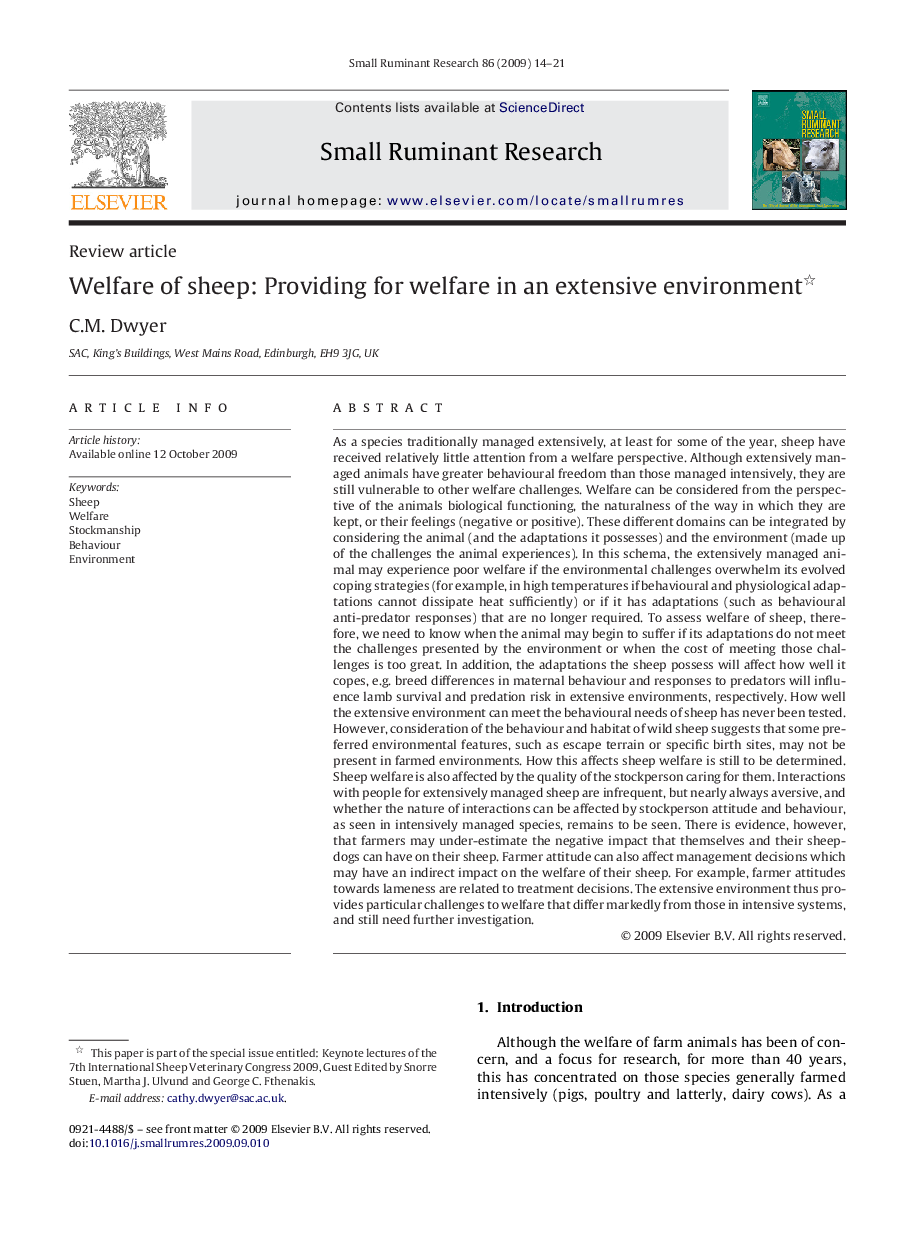| Article ID | Journal | Published Year | Pages | File Type |
|---|---|---|---|---|
| 2457649 | Small Ruminant Research | 2009 | 8 Pages |
As a species traditionally managed extensively, at least for some of the year, sheep have received relatively little attention from a welfare perspective. Although extensively managed animals have greater behavioural freedom than those managed intensively, they are still vulnerable to other welfare challenges. Welfare can be considered from the perspective of the animals biological functioning, the naturalness of the way in which they are kept, or their feelings (negative or positive). These different domains can be integrated by considering the animal (and the adaptations it possesses) and the environment (made up of the challenges the animal experiences). In this schema, the extensively managed animal may experience poor welfare if the environmental challenges overwhelm its evolved coping strategies (for example, in high temperatures if behavioural and physiological adaptations cannot dissipate heat sufficiently) or if it has adaptations (such as behavioural anti-predator responses) that are no longer required. To assess welfare of sheep, therefore, we need to know when the animal may begin to suffer if its adaptations do not meet the challenges presented by the environment or when the cost of meeting those challenges is too great. In addition, the adaptations the sheep possess will affect how well it copes, e.g. breed differences in maternal behaviour and responses to predators will influence lamb survival and predation risk in extensive environments, respectively. How well the extensive environment can meet the behavioural needs of sheep has never been tested. However, consideration of the behaviour and habitat of wild sheep suggests that some preferred environmental features, such as escape terrain or specific birth sites, may not be present in farmed environments. How this affects sheep welfare is still to be determined. Sheep welfare is also affected by the quality of the stockperson caring for them. Interactions with people for extensively managed sheep are infrequent, but nearly always aversive, and whether the nature of interactions can be affected by stockperson attitude and behaviour, as seen in intensively managed species, remains to be seen. There is evidence, however, that farmers may under-estimate the negative impact that themselves and their sheepdogs can have on their sheep. Farmer attitude can also affect management decisions which may have an indirect impact on the welfare of their sheep. For example, farmer attitudes towards lameness are related to treatment decisions. The extensive environment thus provides particular challenges to welfare that differ markedly from those in intensive systems, and still need further investigation.
